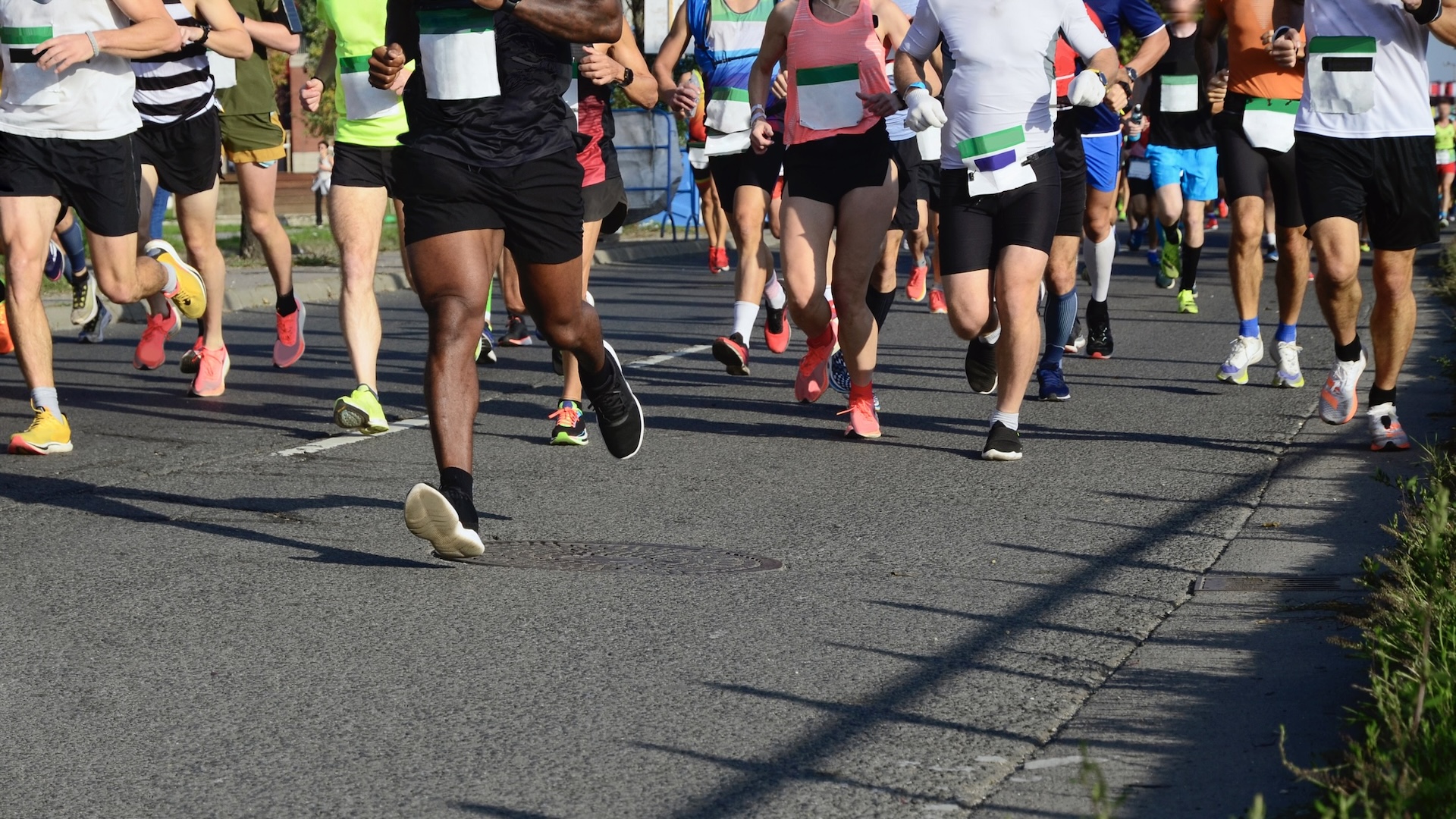Race-day etiquette: 16 top tips to help runners keep things civil on the course
How to be a courteous runner when participating in a race

When you enter a running race, you will most likely consider factors such as training for the distance, what to wear and how to fuel your race. But on race day, it’s important that you know the correct etiquette for running a race. We reveal 16 tips for being a courteous runner when participating in a race.
1. Don’t dump your excess kit
It might be that you turn up at the start line of a running race, whether it’s a 10k, half marathon or marathon, with extra clothing and kit. For example, if it’s a cool or wet start to a race, an extra jumper or a waterproof jacket will keep you warm while you wait for the start of the event.
It is poor etiquette to simply dump this excess clothing at the race start, even if you hope to pick it up later. It is even worse if you leave the unwanted items at the start of the race and never pick them up.
Leaving unwanted clothing is the same as dropping litter and it is not encouraged. You could even face a penalty fine for littering.
The best way to deal with extra clothing and kit is to make sure you hand the unwanted items to a friend near the start line, or stuff it into your running pack so you take it with you.
2. Don’t jump the lines for the bathroom
If it’s a busy running race, there will most likely be long lines at the bathrooms close to the start line. It’s poor etiquette to jump the queues. Why should you go to the front of the line when others have been waiting patiently?

3. A question of peeing
If the race is in a town or city, it’s poor form to pee in the street. In fact, you could face a fine because urinating in a public place is considered a type of littering. Worse, UK runners might be accused of committing indecent exposure under the Sexual Offences Act of 2003, depending on where you pee. Instead, wait patiently in the line for the bathrooms laid on by race organizers.
Advnture Newsletter
All the latest inspiration, tips and guides to help you plan your next Advnture!
4. Be aware of your pace
If you know you are a slower runner, it’s not great etiquette to push to the front of the crowds when you are waiting to start a race. Most busy races will have allotted zones for runners of different paces to congregate.
Faster runners should be towards the front, while slower runners will be further back at the start.
It’s poor show to start slowly at the front so that faster runners need to overtake you.
5. Wear your race number

Race organizers hand out race numbers and chips to ensure they know who is in the race and to keep track of times. It is not just about recording everyone's time, but also for safety reasons because lost runners could be in danger.
It's the right etiquette to abide by the rules of the race and wear the race number.
6. Don’t be a litter bug
You might not normally be a litter bug, but mid-race some runners lose their sense of etiquette and drop the wrappers of gels and food that they have consumed. Again, this is a no-no.
Runners might expect that it’s the responsibility of the race organizer to fetch discarded wrappers and rubbish but this is not the case. You should take care to carry all waste and rubbish with you when you run.
Stuff the wrappers in your running back or pockets and take them home with you so you can responsibly discard them.
Did you know you could face a penalty fine for littering?
7. Spitting issues
Spitting and nose snorting is unpleasant but many runners do this regularly. If you are racing with many others, take care as to where the spit or nose spray ends up.
It is actually rarely acceptable to spit in the street or other public places.
In addition, like urinating, spitting in a public place is considered a type of littering and you could be fined for it.
8. Scary over-taking

Many runners will have experienced the unpleasant situation where another runner races up behind them and then overtakes far too closely or, worse still, overtakes and then shouts abuse or their excuses as they pass.
This is very poor race-day etiquette and, instead, you should respect your fellow runners and make sure you overtake more thoughtfully.
Wait for a space that is wide enough for you to overtake a runner so you can give them a decent berth. You could alert a runner in front that you are about to overtake by gently saying something like “runner behind” or “runner coming past”. Try not to shout at the runner in front and aim to give them enough notice so that they can move to the side.
9. Annoying front-running
Equally, if you are a runner in front of others, try not to hog the path. You should be aware of other runners behind you and especially if the path is narrow of you are heading uphill at a slower pace.
Listen for people behind you so that you can let them pass if they want to.
Running two and three abreast in a busy race can be frustrating for other competitors.

10. Don’t push and barge
The food and water stations can be busy but the right race-day etiquette is to wait your turn to take the items, or to be passed food or water bottles and cups by the people manning the stations.
In many races, the food and water stations are run by volunteers and it’s unpleasant for them to be faced with impatient and rude runners.
11. Don’t be a race bandit
If you run a race without paying for an entry this is called race banditing. There are many reasons why it is poor race etiquette to be a bandit. Paying for an entry is important for organizers because it allows them to continue to host events and it also means they can keep official track of who is in the race and who is not.
12. Be polite
If you are looking for information about the race, whether it’s on the day, before the racer, during the event or afterwards, you should do so politely. Shouting at a marshal as you run by, for example to ask how many miles are left or who is in front of you, is rude. The chances are you wouldn’t do this if it wasn’t a race, so don’t bother in a running event.
It’s far better to say thank you and give praise to volunteers, marshals and organizers.
13. Music matters

Listening to music as you run is allowed at some races, but banned at others – if you are listening to music you will not be as aware of other runners around you. Race organizers generally prefer people not to listen to music in ear buds because it can cause safety issues, though sometimes make an exception for bone-conducting headphones, which don't cover your ears and allow you to hear ambient sounds around you.
It does depend on the race and format but you should consider how your music listening will affect the experience of other competitors.
14. A word about nudity
Unless you are taking part in a specifically naturist race, such as the Naked Run, it's race etiquette to keep on your clothes. Some male runners believe it’s fine to run without a top. Some women like to run in sports bras or crop tops. Not everyone else likes to see this much flesh at races. Have a think about what would be considered to be polite when it comes to baring skin at running races.
15. Move quickly through the finish
Standing around in the finish line funnel could lead to frustration and overcrowding. Try to move through the area quickly to allow other people space and their share of post-race food and goodies.
16. Be grateful
It’s hard for race organizers to please everyone with race bag goodies, t-shirts and medals. Try to accept what is handed out with grace. Complaining on the day and to the race organizers will probably lead to an unpleasant face-to-face exchange.
Many races offer an opportunity for feedback and that can be done after the race by email or a format that the organizer has chosen.
Race day etiquette
If runners are aware of these tips for race day etiquette, it's likely that participants, organizers, marshals and volunteers will enjoy the event all the more.

Fiona Russell is a widely published adventure journalist and blogger, better known as Fiona Outdoors. She is based in Scotland and is an all-round outdoors enthusiast with favorite activities including trail running, mountain walking, mountain biking, road cycling, triathlon and skiing (both downhill and backcountry). Aside from her own adventures, Fiona's biggest aim is to inspire others to enjoy getting outside and exploring, especially through her writing. She is also rarely seen without a running skort! Find out more at Fiona Outdoors.
